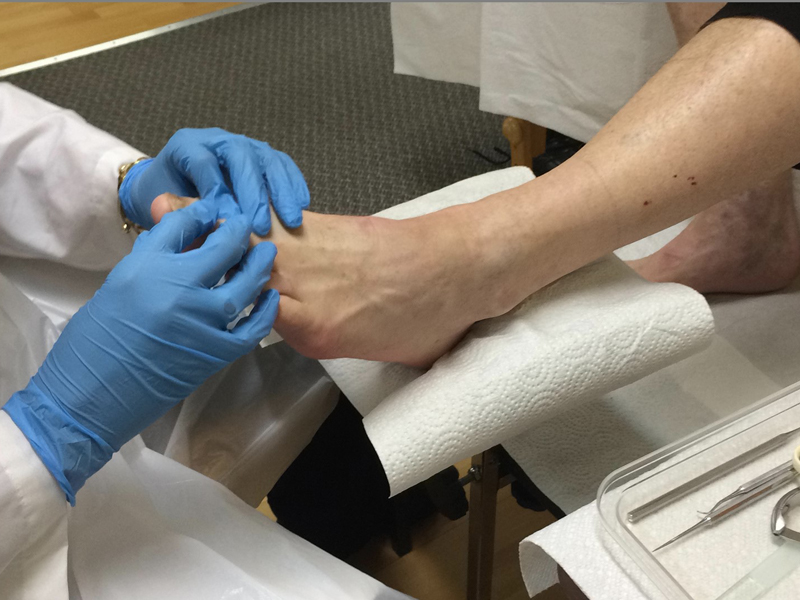The Foot care specialist certificate course is open to any healthcare or non-medical personnel including physiotherapist, massage therapist, and personal support worker who would like to add Basic and Advanced Diabetic Foot Care to their practice settings.
Over 11 million Canadian suffers from diabetes and increasing and many diabetic suffers from foot complications related to nerve damage related to their diabetes, including, below the knee amputation which can be prevented with knowledge and practicing proper foot care.
Course includes:
- What is Diabetes, Overview of Diabetes as a diagnosis, Main Types of Diabetes
- Clinical practice guidelines 2018 Diabetes Canada on the Diabetic foot
- What is diabetic foot care
- Complications of Diabetes
- Look at factors that contribute to foot problems in geriatric and the diabetic clients
- Diabetes Management/self-care management
- Anatomy and physiology of the foot, structural deformities
- Common condition of the joints, and nails
- Diabetic Foot Health Education Checklist
- Diabetes High Risk Assessment, Monofilament testing, Circulation, Sensation, Color of nail, nail and foot deformities.
- Skin conditions and common nail disorders of client’s including; Corns seeded, hard, and soft, Warts, Hallux Valgus, Rams Horn, Ingrown toe nail, Nail fungal, and Callus’.
- Best Practices for Cleaning, Disinfection and Sterilization or tools
- Health Canada Foot Care Infection Control Standards
- How to set up tools, use assessment forms, perform foot assessment using the monofilament testing to check for neuropathy in diabetics
- How to use tools and equipment safely including nail scissors, in grow scissors, black file, dremel, debris evacuator, disinfectant, plastic apron, goggles, N95 mask, face shield, gloves, carrying case etc..
- Best Practices in Reducing Risks of Cross Contamination when performing Diabetic foot care
- Sterilization methods in use example use of Autoclave and single use disposable tools
- Performing a foot care treatment using single use disposable tools in filing, cutting nails using nail nippers, ingrown scissors, using the black file to clean detritus.
- Theory and practice on the safe use of disposable foot file and use of rotary disc
- Using urea base product to decrease callus formation
- Health teaching on using proper foot wear
- When to refer to a primary health care provider
Prerequisites: Hepatitis B vaccine, TB skin test, Criminal reference check and First Aid, and CPR.
For students who does not have malpractice insurance, that can be purchase from Holman Insurance or holisticinsurance.ca
Onsite Lab
Students will be expected to attend an onsite lab after completing the foot care and diabetes online theory and purchasing the foot care kit. At the onsite or Zoom lab, they will be expected to bring in all or have of the tools from foot care kit.
After in class lab or Zoom Lab: Students will be expected to complete 20 hands on case studies that they will find on their own from their communities.
- Each hands on case studies will take approximately 2 hours to complete.
- Students will be expected to submit proof of completing 20 case studies with completed assessment forms with before and after pictures and write up using assessment, planning, implementation, and evaluation process.
Course duration 200hours
Upon completion of this course student will receive the Foot care Specialist Certificate and will receive a 1 year membership under the Foot care Specialist (FCS) category with the National Association or Holistic Health Practitioners.
